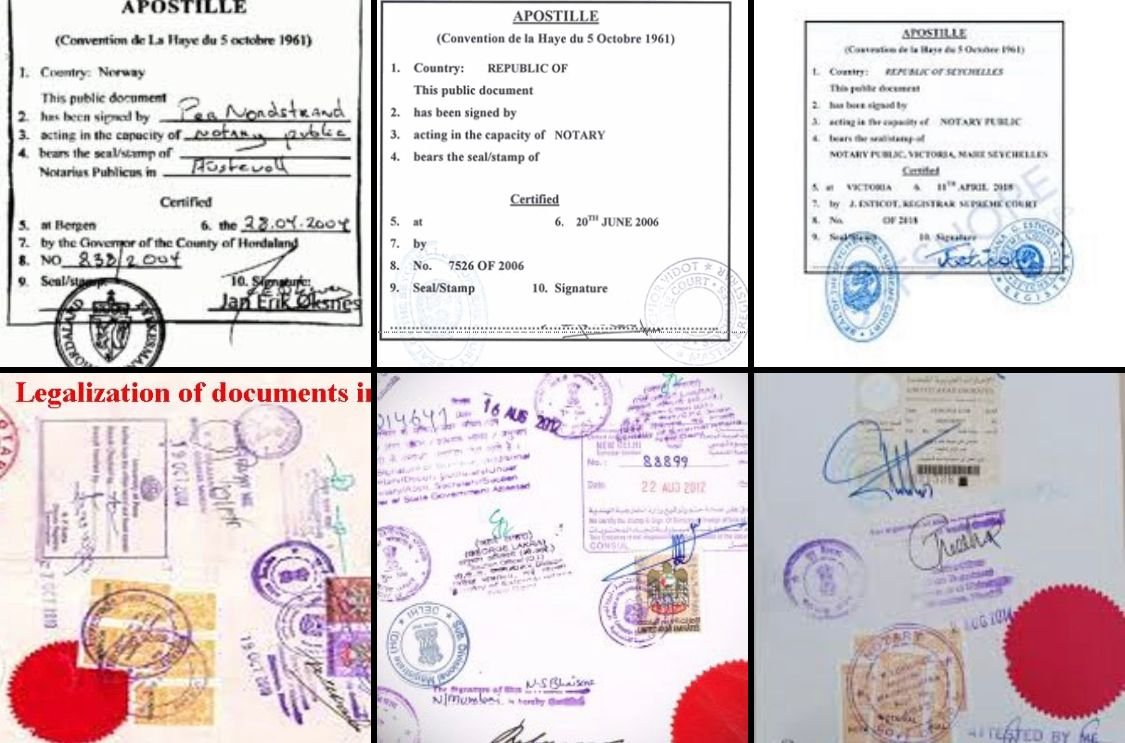
INTRODUCTION:
Getting your documents apostilled in Nigeria is a crucial step if you plan to use them internationally. The apostille process verifies the authenticity and legality of your documents, making them legally recognized in countries that are signatories to the Hague Apostille Convention. In this comprehensive guide, we will walk you through the step-by-step process of obtaining an apostille in Nigeria.
STEP 1: DETERMINE THE ELIGIBILITY OF YOUR DOCUMENT:
Before beginning the apostille process, it is important to confirm whether your document is eligible for apostille. Generally, documents such as birth certificates, marriage certificates, educational certificates, and business documents can be apostilled. However, it is advisable to consult the relevant authorities or legal experts to ensure your document meets the requirements.
STEP 2: NOTARIZATION:
Once you have determined the eligibility of your document, the next step is to get it notarized. This involves having your document certified by a recognized notary public. Notarization ensures that the document is legally valid and authentic, which is a prerequisite for the apostille process.
STEP 3: MINISTRY OF FOREIGN AFFAIRS:
After notarization, you need to take your document to the Ministry of Foreign Affairs in Nigeria. The ministry has offices in Abuja and Lagos where you can submit your document for apostille.
STEP 4: DOCUMENT SUBMISSION:
When submitting your document, ensure that you have the following:
a. Notarized document: Bring the original notarized document along with a photocopy. The photocopy may be required for their records.
b. Application form: Complete the apostille application form, which can be obtained from the Ministry of Foreign Affairs or their website. Fill in all the required details accurately.
c. Supporting documents: Depending on the type of document, you may need to provide additional supporting documents such as copies of your identification. Check with the ministry or consult legal experts to determine the specific requirements.
STEP 5: PAYMENT OF FEES:
There may be fees associated with the apostille process. It is important to inquire about the fees and ensure you have the required amount in the appropriate form of payment. Keep any receipts or proof of payment safely for future reference.
STEP 6: PROCESSING TIME:
The processing time for apostille can vary, ranging from a few days to a couple of weeks. It is advisable to inquire about the estimated processing time when submitting your document. Plan accordingly and be prepared for potential delays.
STEP 7: COLLECTION OF APOSTILLED DOCUMENT:
Once your document has been apostilled, you can collect it from the Ministry of Foreign Affairs. Bring your identification and any receipts or proof of payment provided during the application process. Ensure that you check the document for accuracy and completeness before leaving the ministry.
CONCLUSION:
Obtaining an apostille for your documents in Nigeria is a necessary step for their international recognition. By following the step-by-step process outlined in this comprehensive guide, you can ensure that your documents are apostilled correctly and efficiently. It is important to stay informed about any specific requirements or changes in the process by consulting the Ministry of Foreign Affairs or seeking legal advice. With an apostilled document in hand, you can confidently use your documents abroad for various purposes, such as education, employment, business, or personal matters.


